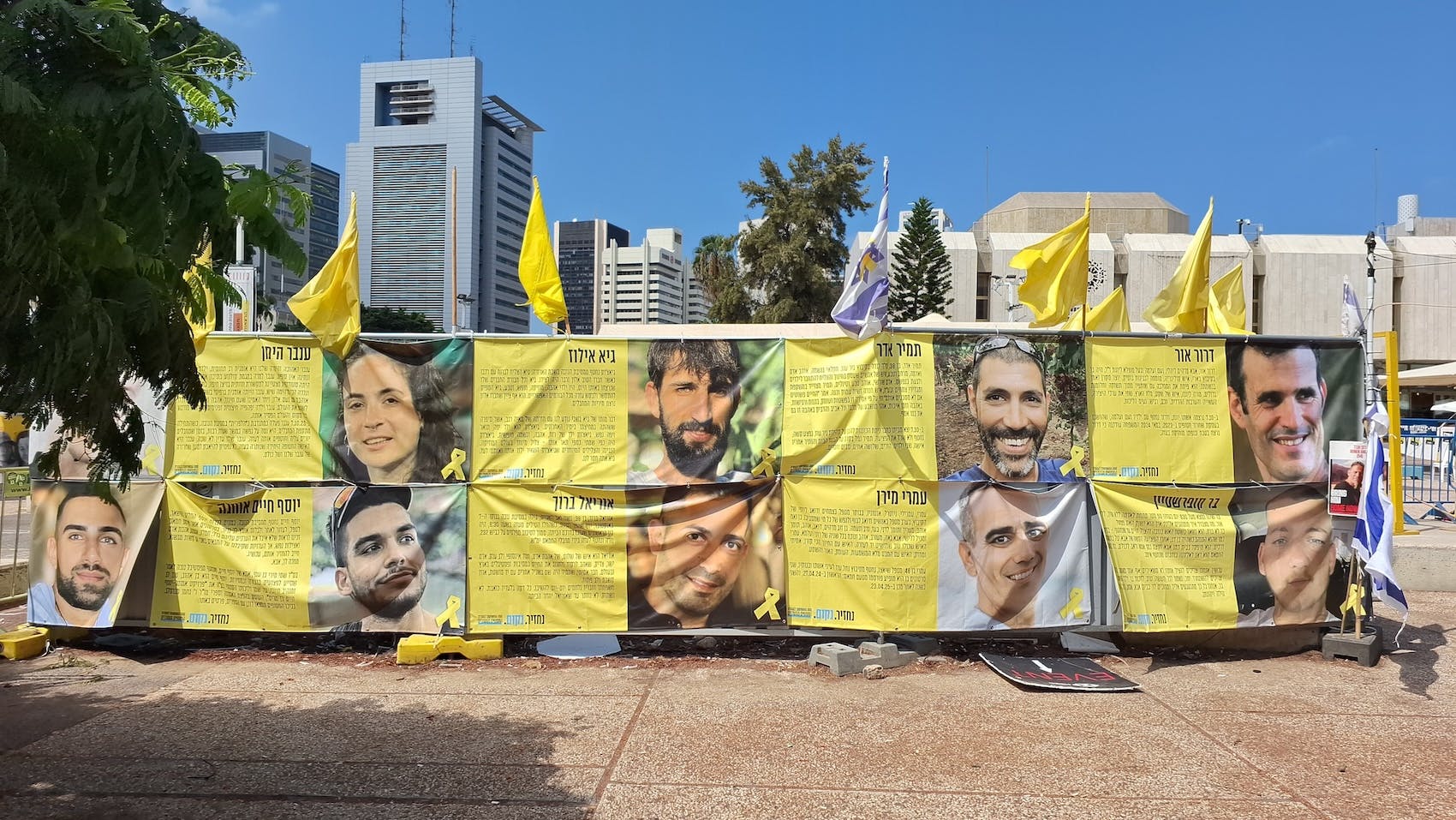Join us for this week's reading of Parashat Behar from Leviticus 25:1 - 26:2, which means 'on the mountain'. We will explore the generosity of God and the instructions he gives to the Israelites regarding their crops, and fields.
Through this Parasha, we will learn of the just character of God to take care of the poor and the foreigner amongst us and how when we trust him and allow the fields to rest (as we do on a Sabbath day), He multiplies what we gave Him as an offering.
A Sabbath Day Rest for the Fields
The people of Israel have assembled on Mt. Sinai to hear God's instructions regarding the land he was to give them in Israel. He starts by setting his standards for rest just as He did in the garden of Eden, stating in Leviticus 25:1-4:
"The Lord said to Moses at Mount Sinai, "Speak to the Israelites and say to them: 'When you enter the land I am going to give you, the land itself must observe a sabbath to the Lord. For six years sow your fields, and for six years prune your vineyards and gather their crops. But in the seventh year the land is to have a year of sabbath rest, a sabbath to the Lord. Do not sow your fields or prune your vineyards.“
Why is rest so important to God? After the fall, the ground would not easily yield its fruits (Genesis 3:17-19), and man would have to work by the sweat of his brow.
God's original intent for the Garden of Eden was for humanity to enjoy it without worrying about food or provision. He also commanded them to rest on the seventh day of the week, calling that day 'Sabbath' which in Hebrew means 'to strike, to seize'.
In Leviticus, God does not only extend his commandment to rest on the Sabbath but also extends it to the soil of the ground and the crops that they yield.
He then introduces them to an even greater standard of rest called the Jubilee in which they were to (verse 8): “Count off seven sabbath years—seven times seven years—so that the seven sabbath years amount to a period of forty-nine years.”
He explains that the (verses 11-12): “fiftieth year shall be a jubilee for you; do not sow and do not reap what grows of itself or harvest the untended vines. For it is a jubilee and is to be holy for you; eat only what is taken directly from the fields.”
Furthermore, he explains that in the year of Jubilee, each should return to their own property.
He Never Forgets the Poor
God then instructs the people how to handle their land and property and to fear the Lord while dealing fairly with the poor.
God does not only command rest to the capable amongst the people of Israel or rest to the soil, but also to the restless of society – the poor and the needy.
Imagine being in a position where you have no means to provide for yourself; every day is a struggle, and your only way to survive is to beg for kindness and mercy. For the poor and the needy, there is no rest for the body or soul; neither do they have anything to offer to their children and no inheritance to pass down.
Although they did not toil, strive or sweat for the fields to yield their crops, nor did they offer anything in order to be able to purchase its goods, God deems them worthy of receiving and entering into rest (Leviticus 25:35-36):
"If any of your fellow Israelites become poor and are unable to support themselves among you, help them as you would a foreigner and stranger, so they can continue to live among you. Do not take interest or any profit from them, but fear your God, so that they may continue to live among you."
In Israel Today
In Israel today, many farmers who work the ground take a "Shnat Shmita", a 'year off' in which they do not raise crops. Oftentimes they will put up a sign on the edge of their field by the side of the road which reads: "We keep the seventh year".
The world might think taking the seventh year off to be a foolish desicion. In today's economy, which knows no rest and the competition is fierce, many business owners or farmers cannot afford to take such long breaks, adding on to the pressure of their daily grind in an ever-changing and never stable economy.
It is a great risk to take, and yet for those who put their trust in God, the greater risk would be to be self-sufficient and independent of Him since striving leads to unrest.
For those who fear they will be without or find themselves lacking, God understands their concern and worry, and being kind to us in our weakness, offers a promise. In this promise, He reminds us that if we do what is right, He will command blessings to be upon us (verses 18-22):
"Follow my decrees and be careful to obey my laws, and you will live safely in the land. Then the land will yield its fruit, and you will eat your fill and live there in safety. You may ask, ‘What will we eat in the seventh year if we do not plant or harvest our crops?’ I will send you such a blessing in the sixth year that the land will yield enough for three years. While you plant during the eighth year, you will eat from the old crop and will continue to eat from it until the harvest of the ninth year comes in.”
Reflection: Do Not Worry
The temptation to worry is understandable, and yet God offers a greater solution to our need for food, clothes, and housing.
In Matthew 6:26-33 Yeshua patiently reminds us to cast our worries on Him instead of carrying the burden alone:
"Look at the birds of the air; they do not sow or reap or store away in barns, and yet your heavenly Father feeds them. Are you not much more valuable than they? Can any one of you by worrying add a single hour to your life?...But seek first his kingdom and his righteousness, and all these things will be given to you as well."
We encourage you to read these verses and dwell on them. Focus on God's kingdom and the spiritual or tangible soil and field of your life and heart, and see where God is asking you to rest and to lend to those in need.
As He promised, if you rest, he will make sure that you are overflowing with blessings far beyond your investment, work, or toil.
As we reflect on this Parasha, we thank God for giving us the grace to trust Him fully and to lay our worries for provision on Him.
Let's pray together:
“God, please help us to put our trust in you and rely on your loving-kindness and trust daily in your provision. Help us follow your instructions in faith. Guide us to share with those who need your care the most.”





